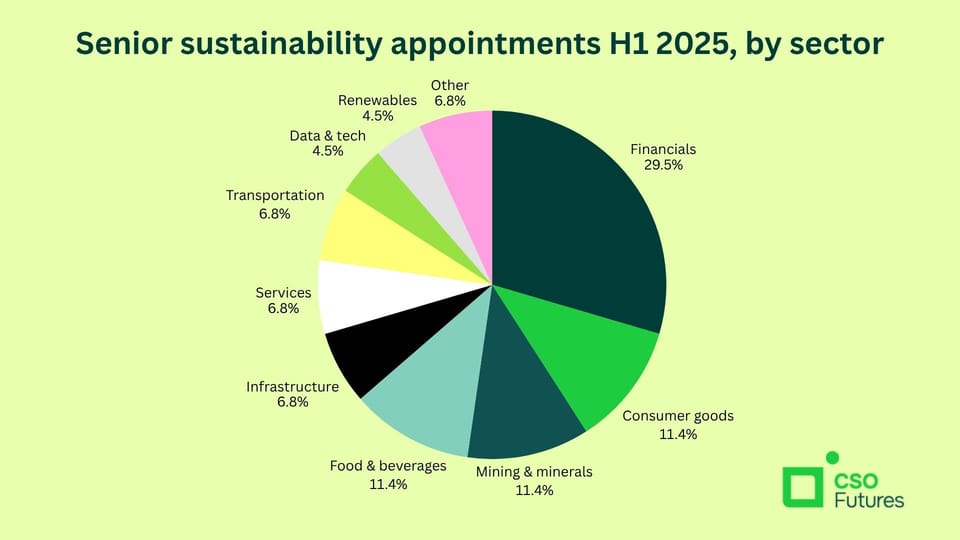Is there really a recession in sustainability recruitment?
An exclusive CSO Futures senior sustainability recruitment report.

There has been a lot of noise about a sustainability ‘recession’ this year – but what does recruitment data tell us?
Based on exclusive data collected by CSO Futures, there were 44 senior sustainability appointments (Chief Sustainability Officer or equivalent) in the first half of 2025, that's 1.7 per week. April was the busiest month with 10 appointments.







